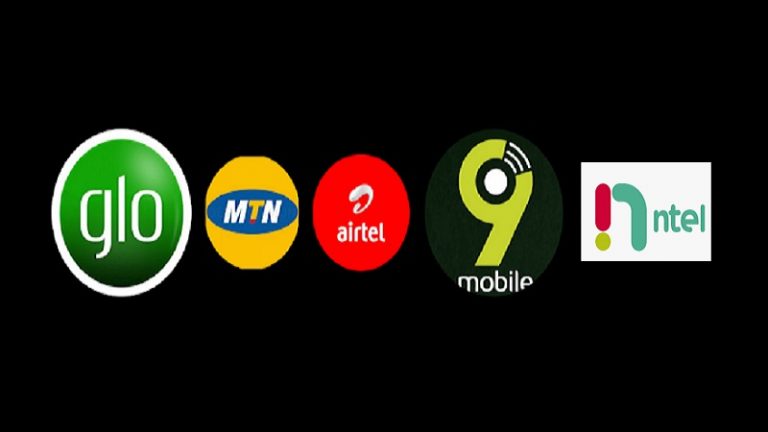
The Nigerian Communications Commission (NCC) has approved a 50% tariff adjustment for telecommunications operators, citing mounting operational costs and the urgent need to sustain the sector.
The decision, announced in a press statement signed by Reuben Muoka, Director of Public Affairs, underscores the Commission’s mandate under Section 108 of the Nigerian Communications Act, 2003, to regulate and approve tariffs for the telecommunications industry.
The approved hike, while significantly lower than the over 100% increase sought by some operators, comes as Nigerians grapple with worsening economic conditions, raising concerns about the added burden on consumers already facing declining purchasing power and high inflation.
Register for Tekedia Mini-MBA edition 19 (Feb 9 – May 2, 2026).
Register for Tekedia AI in Business Masterclass.
Join Tekedia Capital Syndicate and co-invest in great global startups.
Register for Tekedia AI Lab.
Why the Tariff Adjustment Was Necessary
Telecom tariffs in Nigeria have remained largely static for over a decade, despite soaring costs in key operational areas such as diesel for powering network towers, foreign exchange for equipment purchases, and inflation-driven increases in labor and logistics expenses. The NCC explained that the adjustment was inevitable to address the financial strain on operators, ensure the sector’s sustainability, and foster much-needed investment in infrastructure.
In its statement, the Commission emphasized: “The adjustment, capped at a maximum of 50% of current tariffs, though lower than the over 100% requested by some network operators, was arrived at taking into account ongoing industry reforms that will positively influence sustainability.”
The move is expected to enable telecom operators to invest in upgrading their services, expanding network coverage, and addressing recurring service quality issues that have plagued the industry in recent years.
Impact on Consumers
While the NCC acknowledges the financial pressures faced by consumers, the decision has sparked widespread concerns about its potential impact on households and businesses. Many Nigerians are already struggling with squeezed disposable incomes, high fuel costs, and skyrocketing food prices, leaving little room for additional expenses.
Telecom services, once considered a luxury, have become essential for everyday communication, education, and business. The tariff hike means consumers will have to pay more for voice calls, data, and SMS services, further straining their already limited budgets.
The Commission attempted to reassure the public, stating: “The NCC recognizes the financial pressures faced by Nigerian households and businesses and remains deeply empathetic to the impact of tariff adjustments. To this end, the Commission has mandated that operators implement these adjustments transparently and in a manner that is fair to consumers.”
To mitigate the impact of the adjustment, the NCC has mandated telecom operators to adopt transparent practices implementing the new tariffs. Operators are required to educate consumers about the changes and provide measurable improvements in service delivery as a condition for the tariff increase.
The Commission also pledged to monitor the implementation closely to ensure compliance and fairness. This includes requiring operators to demonstrate how the additional revenue generated from the tariff adjustment will be used to enhance network quality and expand coverage to underserved areas.
The decision follows years of advocacy by industry stakeholders for a tariff review. The National Association of Telecommunications Subscribers (NATCOMS) had previously called for a marginal 10% increase to address rising operational costs, while some operators lobbied for a hike exceeding 100%.
Last year, the Federal Government intervened, capping the allowable increase at 60%. The Association of Telecommunication Companies of Nigeria (ATCON) welcomed the NCC’s decision, arguing that a tariff adjustment was long overdue to support the industry’s growth and maintain its critical role in Nigeria’s digital economy.
However, consumer advocacy groups have expressed reservations, warning that the increase could exacerbate economic hardship for millions of Nigerians.
The State of the Telecom Sector
Nigeria’s telecommunications sector is a key driver of economic growth and innovation, contributing significantly to the country’s GDP. However, the sector has faced persistent challenges, including high operational costs, power supply shortages, and foreign exchange constraints.
The NCC’s approval of a 50% tariff adjustment is part of broader reforms aimed at addressing these issues and ensuring the sector’s long-term viability. The move is also seen as an effort to align the sector’s pricing structure with current economic realities.
“Beyond protecting consumers, the Commission’s actions are designed to ensure the long-term sustainability of the industry, support indigenous vendors and suppliers, and promote the overall growth of Nigeria’s digital economy,” The NCC stated.



